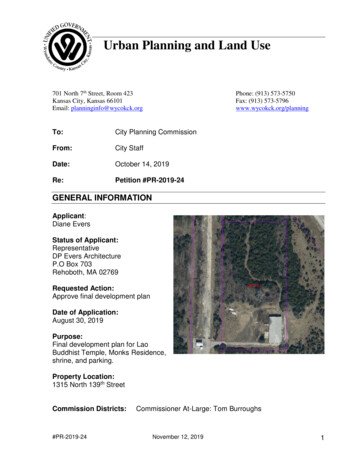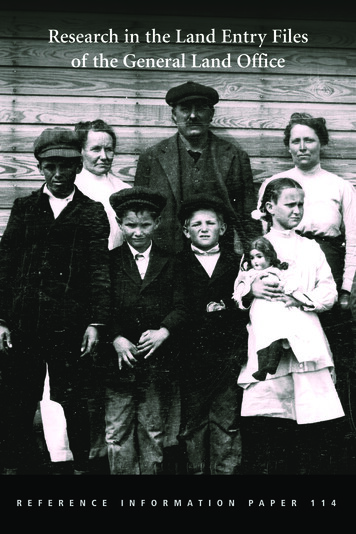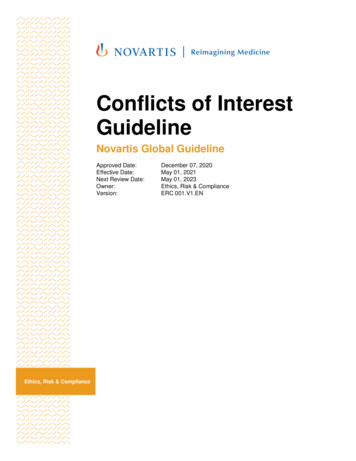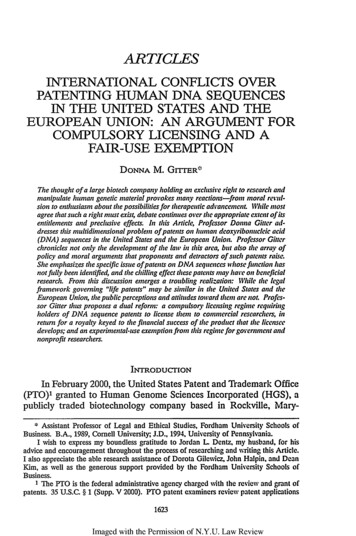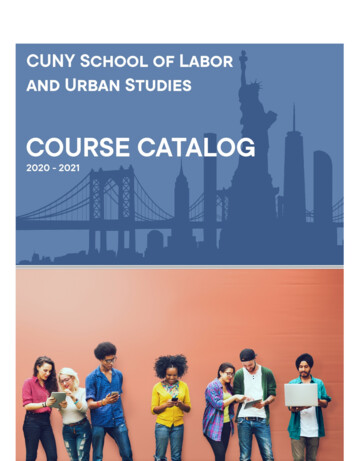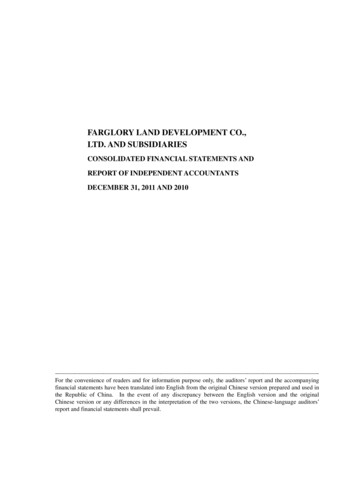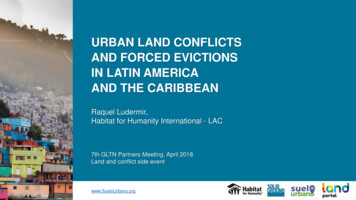
Transcription
URBAN LAND CONFLICTSAND FORCED EVICTIONSIN LATIN AMERICAAND THE CARIBBEANRaquel Ludermir,Habitat for Humanity International - LAC7th GLTN Partners Meeting, April 2018Land and conflict side eventwww.SueloUrbano.org
Collaborative effort(GLTN’s Urban CSO Cluster)
Regional consultationObjective: was to provide an overview of: Different types of urban land conflicts, root causes; Tools and approaches addressing the issue, lessons learned; Way forward, entry points, opportunities for collaboration, etc.Methodology: Regional online consultation in Spanish, Portuguese and English Contribution from over 30 experts and organizations, in 12 countries
Interviews with experts
Report Organized in 3 sections: Understanding the issue Tools and good practices Way forward Available in English, Spanish, Portuguese;widely disseminated; Next phase Another 16 experts / organizations engaged
Evidence from the groundSome figures: 4 million people evicted in Colombia; 270k displaced in Haiti; 250k evicted / threatened in Brazil;Different types of conflicts: Massive development-led evictions; Displacements related to civil/armedconflicts; Intrafamilial conflicts.
Root causes,problems Inequality and povertyChaotic urbanizationWeak governanceCriminalityCorruption Large inequalities in accessto land Historical discriminationagainst the poor Informality Forced evictions Land grabbing
Tools and approaches1. Mapping tools and initiatives2. Land policies3. Advocacy, capacity building, awareness raising
Mapping initiativesGLOBALHousing and Land RightsViolation NATIONALMapa de Conflitos, Brasilhttp://mapadeconflitos.org.brConflictos de Suelo wdmap.com/
Mapping initiativesBuenos Aires, Mapa de las unidadesafectadas por los desalojos en La Boca.Observatorio del Derecho a la Ciudadhttps://www.google.com/maps/d/u/0/viewer?mid 17SuvL5XBfVET1GKMuy2Fid7jFQc&ll -34.63627606842835%2C58.362633500000015&z 15Rio de Janeiro, ObservatórioPermanente dos Conflitos UrbanosUniversidade Federal do Rio de rio-de-janeiroSão Paulo, Observatório das sp.br/São Paulo, Slums on peculacao/
PoliciesPrevention and mediation of land conflict TRINIDAD Y TOBAGO: Incremental approach to land regularization: (1) Certificate of Comfort; (2) 30-year Statutory Lease; (3) 199year Deed of Lease BRAZIL: Special Zones of Social Interest (ZEIS) National Policy for the Prevention and Mediation of Land Conflict;Multistakeholder forum for conflict mediationRobin Rajack, IDB:https://www.youtube.com/watch?v cxW2QCWqQ0M&t 9s HONDURAS Bank trusts
Access to justice Awareness-raising of judicialauthorities through evidencebased dialogues / workshops.Outcomes: A harmonized judicial response toland claims. A programme to accelerate suchjudicial processes. A Public Defender’s Officetaskforce to assist informaldwellers seeking judicial redress.
School of women leaders in tenure security Community empowerment through training of right-holders and defenders at the sub-national and local levels.
Land Rights Helpdesk Partnership with private law firm (pro-bono); Central America and PeruRoadmap Legal, technical advise; while collectinginformation on main challenges to securetenure, focus on women Paralegal program Community empowerment
Way forwardGLOBAL: Alignment with GLTN’s Land & Conflict InitiativeREGIONAL: Working Group / Community of Practice Knowledge management to support local implementation Integrate databases, continue data collection Expand inventory of tools Coordinate / leverage local initiativesLOCAL: Opportunities for local implementation i.e.: Honduras Property Institute requesting support to designconflict mediation policy and tools
Thank you!Ludermir.Raquel@gmail.comwww.SueloUrbano.org
7th GLTN Partners Meeting, April 2018 Land and conflict side event URBAN LAND CONFLICTS AND FOR
